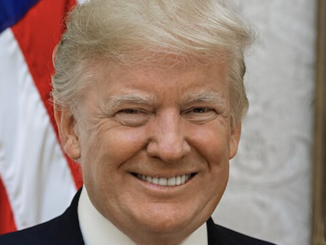Bob? Remember when I told you despite all the tall tales of derring-do in exotic locations, I work in a supermarket and don’t actually have a passport? Tempted the fates. Something’s cropped up. The sort of crop up where Johhny foreigner acts the jemsie on distant sands and high seas. Not to worry. In extremis there’s such a thing as an emergency issue ‘jawaz safar’ – as they say at clay huts displaying moth-eaten flags on the mountainous roads into old Sana’a. Taps nose.
Added to which it’s quiet at the retail park after Christmas and Mr Bernstein and Mr Meyers have given me (unpaid) time off. Word is the pair of them have ‘skin in the game’. Not the end of the world, I should be able to get everything done as per usual, depending on the wi-fi in the Hadramatt Mahrah. Plus, there might be an opportunity for a postcard or two…
The Sultanate of Oman
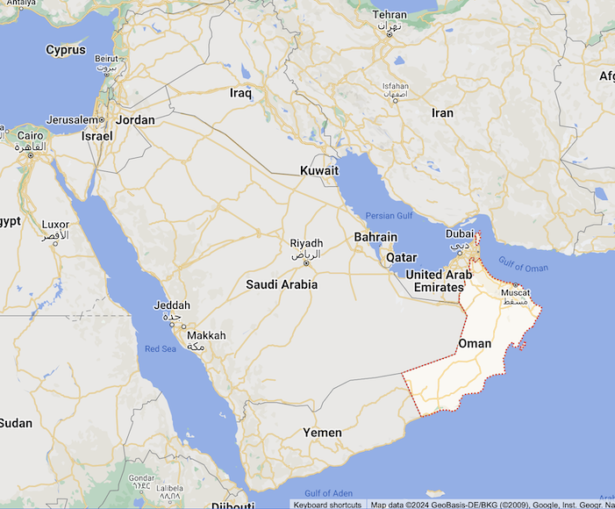
© Google Maps 2024, Google licence
A Muslim country located on the southeastern coast of the Arabian Peninsula in Western Asia, Oman is bordered by the United Arab Emirates to the northwest, Saudi Arabia to the west and troublesome Yemen to the southwest. Pointing north across the Gulf of Oman, four and a half million Omanis in a territory the size of the UK and Belgium combined, face Iran. Despite what the uninformed may deduce from the map, at the closest point the Sultanate is only 32 miles across the troubled waves from the Islamic Republic.
Evidence of human settlement in Oman goes back to the Stone Age. Ancient texts from Mesopotamia mention a place called Magan, which is believed to be part of present-day Oman and was famous for its copper trade. Omanis were among the early converts to Islam in the 7th century during the lifetime of the Prophet Muhammad.
From the 8th century onwards, Oman was ruled by Imams under a form of governance known as the Imamate. This period saw occasional conflicts over power between the coastal areas and the interior. In the 16th century, the Portuguese conquered parts of the Omani coast, including the capital Muscat, to control the trade routes to India. They built forts, which still stand today. In the mid-17th century, the Yaruba imams (1624–1742) consolidated power and ushered in a period of prosperity and architectural development. Under the leadership of Imam Sultan bin Saif, the Portuguese were expelled and Omani influence extended into Zanzibar and other parts of East Africa. As part of this imperial legacy, Oman retains two exclaves separated from it by the United Arab Emirates, the Musandam Peninsula and Madha. It is the former which sits only 32 miles from Iran on the southern side of the strategic Gulf to the open ocean choke point known as the Strait of Hormuz.
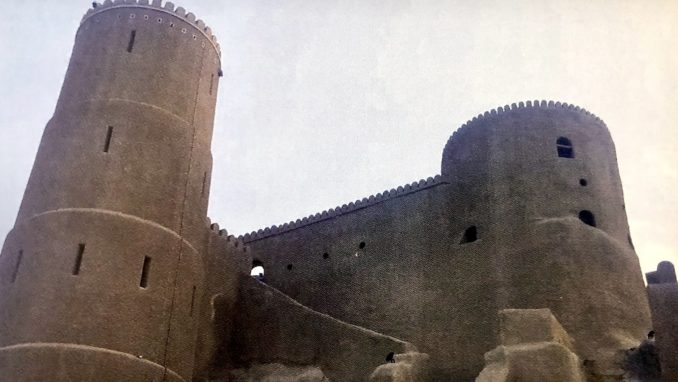
© Always Worth Saying 2024, Going Postal
The 19th and early 20th centuries saw a decline in Omani influence due to internal strife and the loss of overseas colonies. Oman became increasingly isolated under the rule of Sultan Said bin Taimur, with limited development and contact with the outside world.
However, as recently as the late 1950s, Oman held territory in Pakistan. Gwadar, a port city located on the southwestern Arabian Sea coast of the Pakistani province of Balochistan, became part of the Sultanate of Oman in 1797. In the middle of the 20th century, Gwadar was a small harbour, rich in pearl fisheries and a magnet for the smuggling trade. The then Sultan, Said bin Taimur, emboldened by fortuitous discoveries in Oman was reluctant to pass the territory to Pakistan. After six British and American oil companies invited to prospect by the Sutan drew a blank, he sold the territory to Islamabad for $3 million.
Isolationism
Said bin Taimur had become Sultan in 1932 aged only 22 upon the abdication of his father, Taimur bin Faisal. An Anglophile, in May 1958 the Sultan landed at Tilbury on the P&O liner Chusan for a month’s private visit to London. Accompanied by a private secretary and two Arab servants he travelled from Aden (these days in the Yemen) under an assumed name with none of the other 900 passengers being aware of his identity. A startled cabinet minister, Mr Julian Amery, was rushed by helicopter from his own holiday on the Isle of Wight to the Essex port to greet the unexpected VIP. Different times.
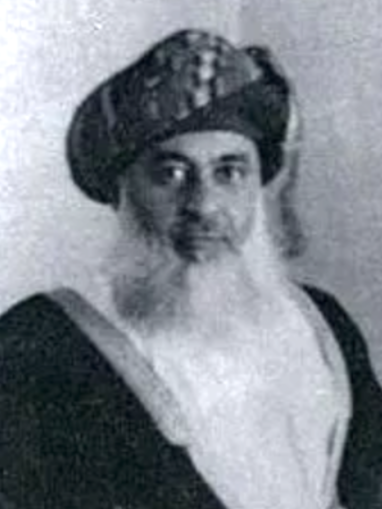
Sultan Said bin Taimur of Muscat,
Unknown photographer – Licence CC BY-SA 4.0
Three years previously, a Miss Jan Morris had accompanied the Sultan on the first-ever crossing of the Omani desert by motor car. Her resultant 168-page telling of the tale, part of her ‘Pax Britannica Trilogy’, tells of a truly medieval Islamic state, shuttered against all progress under the aegis of her traditionalist and autocratic travelling companion. According to the guff, ’Rumors of subversion and the intrigues of foreign powers mingled with the unsettling smell of oil to propel the Sultan on a royal progress across the desert hinterland.’ As well it might, as through the following decades the whiff of oil became a flood of hydrocarbons with ourselves, using all our tact and guile, keen to cultivate the Sultan and his successors.
Said bin Taimur’s son, Qaboos, was born in November 1940 in Salalah in the Dhofar region of Oman. He was educated in Salalah and Pune, India, and later attended the Royal Military Academy Sandhurst. Following his commission, he served in the British Army in West Germany. Upon returning to Oman he was placed under house arrest by his father but was still able to overthrow the traditionalist and isolationist Sultan in a July 1970 bloodless coup.
Good eggs
In his time, Sultan Qaboos was to become the longest-serving leader in the Middle East during a reign in which he was widely respected for his leadership and for the stability and prosperity he brought to Oman. His death in 2020, aged 79, was widely mourned and his legacy is seen in the modern state of Oman, which he transformed from an isolated kingdom into a developed and diplomatically active country.
During his five decades, he modernized the country’s infrastructure with the construction of roads, schools, hospitals and public services. The economy diversified, reducing the reliance on oil by investing in sectors like tourism, agriculture and industry. He introduced social reforms, including women’s rights and education, significantly increasing literacy rates. Maintaining a policy of neutrality in foreign affairs, he remained a good friend of the United Kingdom and often acted as a mediator in regional disputes. A patron of the arts and culture, he established the Royal Opera House Muscat as a centre for the arts and culture in the Arab world.
A thoroughly good egg, even to the point of abolishing slavery, the Sultan invested wisely in Jaguars, Challenger 2s, Typhoons, Hawks and a country estate in Berkshire. Equally wisely, he gave democracy a wide birth and was not only Sutan but Prime Minister, Supreme Commander of the Armed Forces, Minister of Defence, Minister of Finance and Minister of Foreign Affairs.
In the early part of his reign, Puffins of a certain generation who were tempted by the money may recall serving in Oman. Not the most exciting of postings, beyond getting the dessert out of bits of tanks and aeroplanes there was not a lot to do apart from watch videos. A friend tells me being elected to the video club committee became a big thing, worthy of Pax Britannica’s age of subversion and intrigue. Those who know, know.
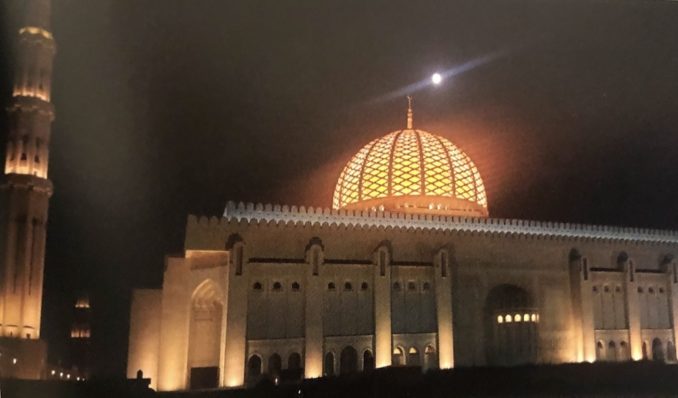
© Always Worth Saying 2024, Going Postal
Childless and aware that the Royal Family Council were unlikely to reach agreement regarding a succesor in the three days allowed for by the constitution, upon his death a secret letter was discovered in which Qaboos bin Said nominated his cousin Haitham bin Tariq to be the next Sultan.
Another good type, the 69-year-old was educated in Oman and the United Kingdom, where he attended Pembroke College at the University of Oxford.
Before Becoming Sultan, Haitham had a long and distinguished career in public service. He served in the Foreign Ministry and held various diplomatic positions, including the Secretary-General for the Ministry of Foreign Affairs. He served as the Minister of Heritage and Culture for many years and was the head of the Oman Football Association and later the chairman of the Oman Olympic Committee.
Presently enjoying his seventieth year and the fourth year of his reign, in a world gone mad we find Haitham bin Tariq Al Said, Sultan and Prime Minister of the Sultanate of Oman, relaxing at his Al Alam Palace (between the Al Mirani and Al Jalali Forts which guard the oldest harbour in Muscat) while awaiting a little visitor.
There is a confident knock upon the door, as if from a well-exercised hand used to forcing tins of (Halal) dog food upon an already full shelf within a big shed closeby an English motorway junction.
To be continued…
© Always Worth Saying 2024


